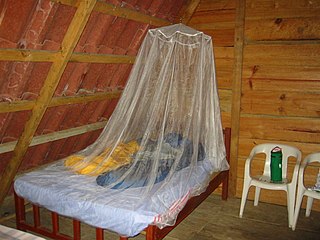
The Cameroon People's Democratic Movement is the ruling political party in Cameroon. Previously known as the Cameroonian National Union, which had dominated Cameroon politics since independence in 1960, it was renamed in 1985. The National President of the CPDM is Paul Biya, the President of Cameroon, while the Secretary-General of the RDPC's Central Committee is Jean Nkuete.
The Cameroon Democratic Union is a political party in Cameroon. It was founded by Adamou Ndam Njoya, a former Minister of National Education under President Ahmadou Ahidjo, on 26 April 1991.
"Pa" Simon Achidi Achu is a Cameroonian politician who served as the Prime Minister of Cameroon from 1992 to 1996. Previously he was Minister of Justice from 1972 to 1975. A leading member of the Cameroon People's Democratic Movement (CPDM), Achidi Achu was appointed as Chairman of the National Investment Corporation in 2003, and he was elected to the Senate of Cameroon in 2013.
Bello Bouba Maigari is a Cameroonian politician. He was the 2nd Prime Minister of Cameroon from 6 November 1982 to 22 August 1983 and has been the National President of the National Union for Democracy and Progress (UNDP) since January 1992. Although he was a key opposition leader for much of the 1990s, he has participated in the government since December 1997; he was Minister of State for Industrial and Commercial Development from 1997 to 2004, Minister of State for Post and Telecommunications from 2004 to 2009, and Minister of State for Transport from 2009 to 2009. Since December 2011, he has been Minister of State for Tourism and Leisure.

Parliamentary elections were held in Cameroon on 22 July 2007, with voting in some districts re-run on 30 September. Local elections were held on the same day, with seats on 363 town councils at stake. The result was a victory for the ruling Cameroon People's Democratic Movement (RDPC), which won 153 of the 180 seats in the National Assembly, whilst the main opposition party, the Social Democratic Front (SDF), won 16 seats.
The Progressive Movement is a minor opposition political party in Cameroon. It was formed on 23 August 1991 and is led by Jean-Jacques Ekindi.
The National Union for Democracy and Progress is a political party in Cameroon, drawing its main support from the north of the country. It was established as an opposition party in the early 1990s and won the second largest number of seats in the 1992 parliamentary election. The UNDP's National President is Maigari Bello Bouba, who is currently a Minister of State in the government.
Augustin Kontchou Kouomegni is a Cameroonian political figure who served in the government of Cameroon from 1990 to 2001. As Minister of Information and then Minister of Communication, Kontchou was a prominent and controversial figure, reviled by the opposition, during the political turmoil of the early 1990s. Later, he was Minister of State for Foreign Affairs from 1997 to 2001 and Chairman of the Board of Directors of the University of Douala from 2005 to 2008.

The 2008 Cameroon protests were a series of violent demonstrations in Cameroon's biggest cities that took place from 25 to 29 February 2008. The protests followed on the heels of a strike by transport workers, who were opposing high fuel prices and poor working conditions. Further political turmoil had been caused by President Paul Biya's announcement that he wanted the constitution to be amended to remove term limits; without such an amendment, he would have to leave office at the end of his term in 2011. Large groups of youths, whom the opposition Social Democratic Front (SDF) political party and the government blame one another for organising, took to the streets of Douala, Yaoundé, Bamenda, and other major cities, looting and vandalising property. The government sent in troops to crack down on the unrest, and protesters and troops alike were killed. The official government tally is that 40 people were killed, but human rights groups claim that the total is closer to 100. Government figures place damage to property at tens of billions of francs CFA.
Jean-Jacques Ekindi is a Cameroonian politician. He has been the National President of the Progressive Movement, an opposition political party, since its foundation in 1991, and he was a Deputy in the National Assembly of Cameroon from 2007 to 2013.

Issa Tchiroma Bakary is a Cameroonian politician who served in the government of Cameroon as Minister of Transport from 1992 to 1996 and has been Minister of Communication since 2009. He is the President of the Front for the National Salvation of Cameroon, a minor political party.
Garga Haman Adji is a Cameroonian politician. He served in the government of Cameroon as Minister of the Civil Service from 1990 to 1992 and is currently the President of the Alliance for Democracy and Development (ADD), a minor political party. He is also a municipal councillor in the First Arrondissement of Maroua.

Presidential elections were held in Cameroon on 11 October 1992. They were the first presidential election since multi-party politics had been legalised, and were also the first to feature more than one candidate. Incumbent Paul Biya won with 39.98% of the vote. Voter turnout was 71.9%.

Presidential elections were held in Cameroon on 9 October 2011. Incumbent President Paul Biya stood for another term after a constitutional amendment passed in 2008 eliminated term limits. Biya was re-elected with 78% of the vote.

Presidential elections were held in Cameroon on 7 October 2018.










